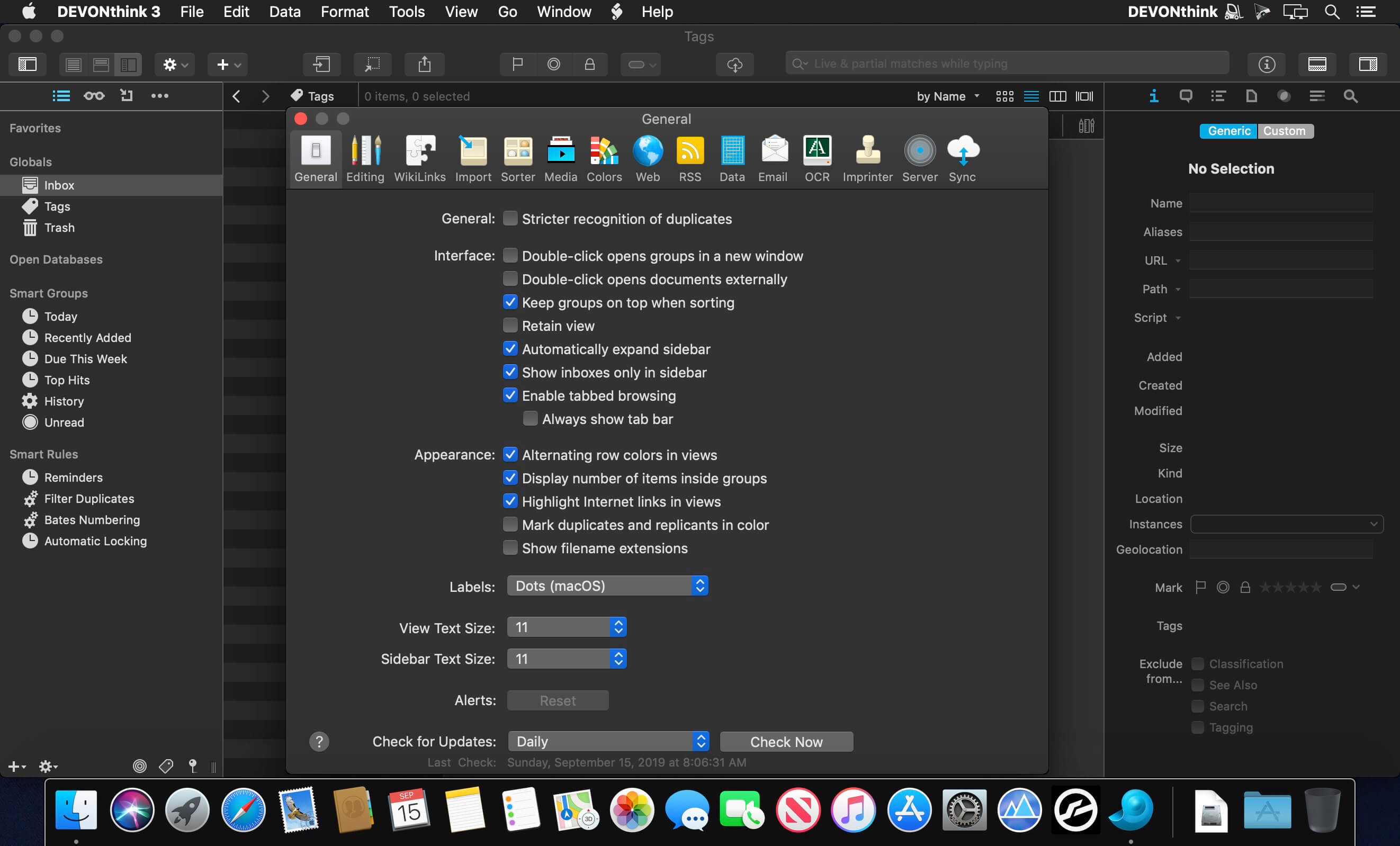

But he does have the information from the chapter’s sorted: He does not actually write the book in DevonThink. In regards to the message above regarding Steve Johnson’s book writing process. I felt like I had too many groups…but in actuality, I will not be searching my groups via visual inspection of them but through DevonThink’s search and AI features…and the more fine-grained my groupings the better the results? Anyone? I came to this post trying to answer the questions how many groups I may need or want to have in my databases.


develop your outline in Scrivener’s Draft folder, with each section a sub- folder.Obviously its usefulness depends on what you’re writing and how much research you’ve gathered: They are two excellent tools for specific jobs and as far as I know have no exact equivalents elsewhere.Įdit: here’s a simple workflow I’ve developed for long articles, based on something Steven Berlin Johnson wrote. With DT’s new Sorter taking over this role, I think I’ll concentrate more on Scrivener and DT. I do have one or two other applications for outlining-again, a different job-and in addition up till now I’ve used MacJournal for “snippet collection”. Scrivener’s dual-pane view then allows me to draft with the research alongside. So, as, I suspect many people do, I store my research in DT and then drag key selected pieces into Scrivener’s research folder-the work of a moment. In the two roles that are central to composing long-form documents, research and writing, I’d prefer to use the right tool for the right job. Of course DT can be used for writing-as, say, the historian Steven Berlin Johnson famously does-and, equally Scrivener can be used for storing quantities of research material, but it seems to me slightly perverse to do so. (And very large quantities of research can certainly slow Scrivener up.) Although DT has writing tools, Scrivener’s are a lot better (examples: Scrivener’s saving routine, its full-screen-cleverer than DT’s-its dual-pane for writing and editing), and although Scrivener can store research material, DT’s database management tools are self-evidently better than Scrivener’s. It seems to me that they are different tools with different purposes. Am I correct in this theory or would I be better of sticking with mixing Devonthink and Scrivener together? Everything else including drafts and versions looks like it could be set up in Devonthink without too much of a hassle. I’d love to hear some insights about how best to combine these two, or if you only stick with Devonthink how do you go about setting up your environment? It seems simple enough to set up all the functionality that Scrivener has with the exception of the corkboard.
Devonthink pro office manual full#
I start loading all that up one after the other and it feels like I’ve done a full day’s work by just going through all that, never mind trying to understand what half the programs are doing or doing more then scratching the surface of what each one offers, except for the very simple apps which look like they are somewhat pointless if you’ve got a single heavy duty one.Īs there any folks here who either use Devonthink and Scrivener together in a complementary fashion, or Devonthink alone as their writing environment? I don’t so much understand how the folks who juggle 10 different applications which all overlap one another, manage to use all of that to accomplish anything. This method is not working for me very well and I am looking to simplify. I’m already awash in so many different programs that I could spend the entire day launching all of them and then I inevitably forget what bit of information is where. I have read the threads over on Literature and Latte with some use examples where people suggest using Devonthink as a place to put all their research which doesn’t fit into Scrivener and then do their writing in Scrivener, but many of these folks are the same ones who seem to have another program for everything under the sun and wind up running Scrivener to shuffle about their cards on the corkboard, Pages for their own output, Word for output to everyone else, Devonthink for research, Cyndicate or NNW for their RSS, VoodooPad for their wiki, Yohimbo for their quick notes, Tinderbox for their brainstorming and Notebook for lord knows what.

I’ve a question for those who are using Devonthink for writing.


 0 kommentar(er)
0 kommentar(er)
